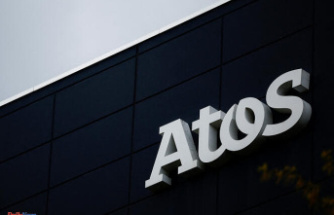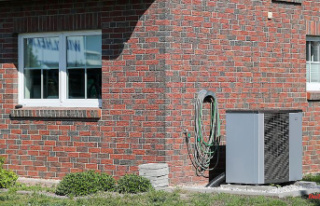Smartphones, televisions and computers: During the Corona crisis, devices with screens found a particularly large number of buyers. But now things are going down again. That makes the suppliers suffer.
After the boom in the corona pandemic, the demand for smartphones, TV sets and computers has weakened significantly. Manufacturers, outfitters and suppliers are clearly feeling the effects of consumers holding back spending due to high inflation, rising interest rates and the gloomy economic outlook. For example, the smartphone market shrank by nine percent in the third quarter - the third decline in a row, according to figures from the analysis company Canalys. Due to the general reluctance to buy, Canalys does not expect a recovery in the next six to nine months.
The meager demand for the intelligent telephones hit the second largest manufacturer of memory chips, SK Hynix. The group announced that the prices for memory chips had fallen by 20 percent in the third quarter. Its operating profit fell 60 percent to 1.66 trillion won in the July-September period. The company warned of an "unprecedented deterioration" in demand. Just like the screen specialist LG Display, the group wants to cut investments in order to reduce costs and adapt production to the market.
Microsoft also complained about the weak business with its PC operating software. "The PC market has been worse than we expected," said Brett Iverson, Microsoft's chief investor relations officer. "Things only got worse as the quarter progressed and that also weighed on our Windows OEM business." In the past quarter, the US group recorded the lowest increase in sales in five years, and revenue from the PC business shrank.
"We hope that the market will stabilize to some extent in the second half of next year, but we do not rule out the possibility of a prolonged downturn," warned sales chief Kevin Noh in an analyst call. That's why SK Hynix wants to cut its investments by more than 50 percent by 2023. This fueled hopes among investors that the oversupply of chips would be curbed and prices stabilized. Therefore, the shares of SK Hynix even increased on the stock exchange.
Other chip manufacturers such as the US company Micron or the Taiwanese giant TSMC also want to reduce their investments. LG Display also wants to reduce costs. The Apple supplier slipped into the red for the second straight quarter, posting an operating loss of 759 billion won after a profit of 529 billion won a year ago.
"We will make comprehensive efforts to improve our financial structure as soon as possible," said Chief Financial Officer Sung-hyun Kim. The meager demand for liquid crystal and OLED screens will probably continue for some products into the second half of 2023, LG Display said pessimistically.












